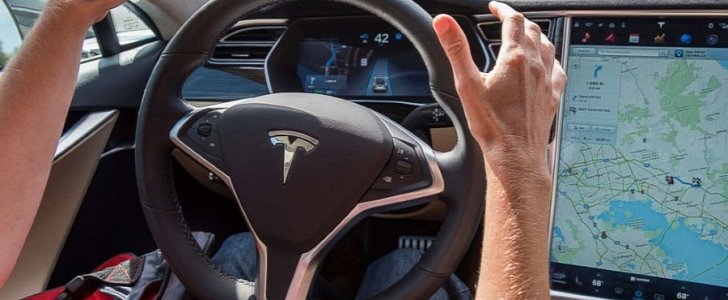The auto industry is working towards achieving Level 5 autonomy, but technological progress is only one of the hurdles carmakers have to overcome. Car owners’ reluctance to the idea of autonomous cars is also among them.
A new study by British motoring association Automobile Association, AA for short, reveals that cultural attachment to cars remains very strong, which translates into an unwillingness to take the hands off the wheel when in a driverless car. At the same time, motorists don’t have complete trust in the technology, which has the same consequence, ITV reports.
Over 21,000 drivers were questioned in the survey and, of these, a quarter said they would trust a vehicle to drive itself while they were inside it. The rest admitted that they would not be taking their hands off the wheel, no matter how many assurances they got that the vehicle would be able to handle anything in traffic.
AA president Edmund King says that carmakers need to win drivers over before moving on to make a true autonomous car. The cultural attachment to the car must not be ignored or underestimated.
“Today, nearly two thirds (63%) would be lost without their car, more women (70%) say they would be lost without their car than men (59%) and two thirds still actually enjoy driving,” King says. “Even with the projected growth of ride hailing, connected and driverless cars, almost half can never envisage a time when they might give up their car.”
Nine in 10 drivers questioned said they would not trust the car to make the right decisions in case of unforeseen circumstances in traffic, not when they were inside and could take the wheel themselves. On the bright side, drivers do welcome technology in the car – as long as they don’t have to relinquish full control of the vehicle.
The same survey reveals that 59% of those queried wanted adaptive cruise control and 58% would have liked advanced automatic emergency braking.
“The car has been pretty much the same for 100 years, but the next decade will see more change than in the previous 50 years,” King added. “There is no doubt technological advances can and will save lives and enhance mobility for the elderly, disabled and the young. The jury is still out on when, or if, the consumer will embrace the driverless car in the way they have grown to love driving their cars.”
Over 21,000 drivers were questioned in the survey and, of these, a quarter said they would trust a vehicle to drive itself while they were inside it. The rest admitted that they would not be taking their hands off the wheel, no matter how many assurances they got that the vehicle would be able to handle anything in traffic.
AA president Edmund King says that carmakers need to win drivers over before moving on to make a true autonomous car. The cultural attachment to the car must not be ignored or underestimated.
“Today, nearly two thirds (63%) would be lost without their car, more women (70%) say they would be lost without their car than men (59%) and two thirds still actually enjoy driving,” King says. “Even with the projected growth of ride hailing, connected and driverless cars, almost half can never envisage a time when they might give up their car.”
Nine in 10 drivers questioned said they would not trust the car to make the right decisions in case of unforeseen circumstances in traffic, not when they were inside and could take the wheel themselves. On the bright side, drivers do welcome technology in the car – as long as they don’t have to relinquish full control of the vehicle.
The same survey reveals that 59% of those queried wanted adaptive cruise control and 58% would have liked advanced automatic emergency braking.
“The car has been pretty much the same for 100 years, but the next decade will see more change than in the previous 50 years,” King added. “There is no doubt technological advances can and will save lives and enhance mobility for the elderly, disabled and the young. The jury is still out on when, or if, the consumer will embrace the driverless car in the way they have grown to love driving their cars.”






